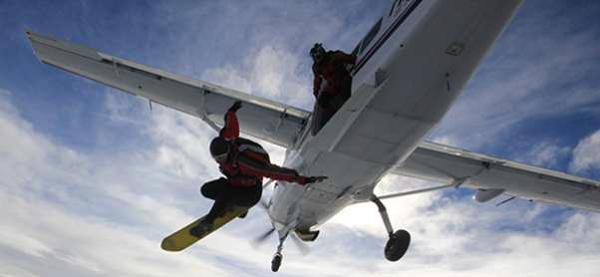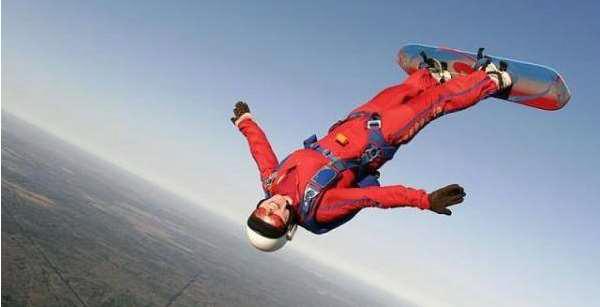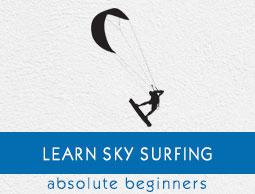Sky Surfing - How to Play?
The height is minimum 10,000 feet above the ground level. The level of height gives the surfers more time to showcase their talents in the open air. The ground level upon which they are performing should not be a crowded one. This is because at the end of the game, they have to land on an open surface probably on a water surface for their safety.
A surfer must wear all the equipment and the dresses required for the sport. The players must carry a hook knife with them.
All the jumpers are instructed to carry at least one visual or audible altimeter with them. They can also use both of them.
Among all the equipment, the recovery system is the most important equipment for the sky surfers.
The surfer and the camera holder must wear helmets which not only covers the head but also the whole face to provide safety to the players. Because around 10000 feet above the ground, if anything hits you, then you can’t get immediate help, so helmet is must.
Besides helmet, a first aid kit, proper dress which sustains wind pressure and shoes will be good for the players. Communication device should be with the players to avail help when necessary.
Sky Surfing Grade 1
To excel in Sky Surfing Grade 1 (SS1), the surfer must follow some rules or techniques.
To excel in Sky Surfing Grade 1 (SS1), the surfer must follow some rules or techniques.
The surfer must perform a controlled turn of 360 degrees in both the directions while staying upright on the board.
The player must know how to exit and for this he must perform a type of exit which is known as surfing down the slipstream.
After these, the surfer must have expertise in loop which is controlled back and front. The surfer should also demonstrate the forward movement by tracking while at the same time he must stay upright on the board.

Sky Surfing Grade 2
Besides SS1, there are also techniques for sky surfing grade 2 (SS2).
The player should have the eligibility to clear the SS1 and then only he can move into SS2.
The surfer must perform a controlled seated turn of two 360 degrees or a 720 degree movement. This is called as sit spin.
The surfer should be an expert in performing loops. He must perform a full 360 degrees of back loop or front loop forming a standing position with a half twist fully under control.
The surfer should perform a controlled helicopter spin, rotating for a minimum of 3 times in 360 degrees but not exceeding six complete revolutions.

Evaluation of Scores
In sky surfing, each jump is evaluated by a minimum of three judges. In some tournaments, there are also five to six judges depending on the level of competition in the tournament.
Each judge gives scores in two sub-scores basis which ranges from 0 to 50.
The two sub-scores are called as technical merit and artistic merit.
The two sub-scores are added together to reach a total score of 0 to 100 for each team’s jump and the scores of all the teams, which is measured and given by the judges, are added for a cumulative total of each team’s jump.
It is cumulative because there are five jumps performed by each team.
The competition consists of a total of five jumps and each jump will count some points for each team.
At the end of the competition, all scores will be counted. But it does not mean that each team will make five jumps. In fact, all the teams will make four jumps each and after the fourth jump, five teams are selected.
The Fifth Jump
The last or the fifth jump is taken by the top five teams.
The scores obtained in the fifth jump by the teams will be added again to increase the weight of the final jump which will count for one-third the total of the event.
The sum which is obtained by the cumulative scores after all the jumps are completed will be the final score for each team.
The team with the highest cumulative or total scores is declared as the winner of the match.
Judging
The judges in sky surfing have eagle eyes. They closely observe the sequences that are happening.
Sometimes the judges may use a live transmission or recorded air-to-ground video.
If air-to-ground video is not available, then they can also take the help of air-toair video recording as both are helpful to judge the moves performed by a team.
If a live system is used by the judges, then they will be able to watch each jump as it is performed live, while it is also being recorded from the air to ground signal.
The entire jump or some portions of the jump may be reviewed via an instant re-play option. This option can only be chosen if it is requested by two or more judges available during the scoring.




